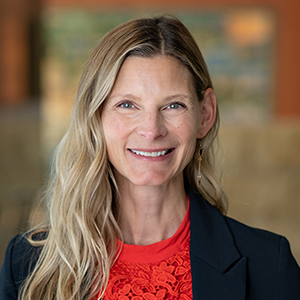Buy a home, build equity, and watch your wealth grow. This long-held formula is how middle-class Americans have generated wealth for decades. When families are able to sell their homes voluntarily, both Black and White households gain financially. But new research by Amir Kermani and Francis Wong presented at the fall Institute research conference highlights that differences in the likelihood of adverse economic events make it harder on average for Black homeowners than White homeowners to build housing wealth.
To illustrate how Black and White homeowners fare in the housing market, we examine the annualized returns for families who bought homes in the same year and in the same county.
Income instability changes the equation
Homeownership is riskier for Black families. They profit from normal sales but are more economically vulnerable and therefore more likely to lose their homes. Black homeownership is more fragile partly because Black workers are more likely to be laid off and to fall behind on mortgages. 2
When mortgage costs go up, such as when a house is reassessed for tax purposes, mortgage delinquency rates go up, too. But the share of Black households that fall behind on their mortgages rises more than twice as much as it does for White households.
Normal fluctuations in mortgage costs therefore push more Black households into distressed sales and drive down Black housing returns.
The equation is unequal
Poor economic conditions also take a larger toll on Black households than White households, and this feeds through to housing returns. During the Great Recession, for example, the racial gap in foreclosures widened, which led the gap in annualized housing returns between Black and White households to triple.
Easing the stress
Conditions that make incomes more certain (like a strong economy) or keep people in their homes even when they are struggling (like loan modifications) lower the number of distressed sales and shrink racial gaps in housing returns.
As the economy recovered from the Great Recession, for example, racial differences in housing returns lessened. For houses purchased in 2015 (and sold by 2019), returns for Black households were indistinguishable from returns for White families in the same county.
When a homeowner falls behind on their house payments, mortgage servicers—the companies that handle payments—can choose to foreclose or negotiate a short sale (referred to as distressed sales above), which typically results in large losses. But servicers can also modify the terms of a loan either temporarily or permanently to help homeowners stay in their home. Some public policies, like the CARES Act, encourage and subsidize these mortgage modifications.
Modifications go a long way toward avoiding distressed sales and raising housing returns. Homeowners who happen to have a mortgage servicer that frequently modifies loans for other borrowers are themselves more likely to be offered a loan modification than similar homeowners with a different servicer. They then see both their probability of a distressed sale and their housing losses cut in half.
Endnotes
1 Financial returns calculated from data collected under the Home Mortgage Disclosure Act (HMDA) combined with sales price information from ATTOM (a private data provider).
2 Survey of Income and Program Participation (SIPP).
This article is featured in the Spring 2022 issue of For All, the magazine of the Opportunity & Inclusive Growth Institute
Related Content
Related Content






